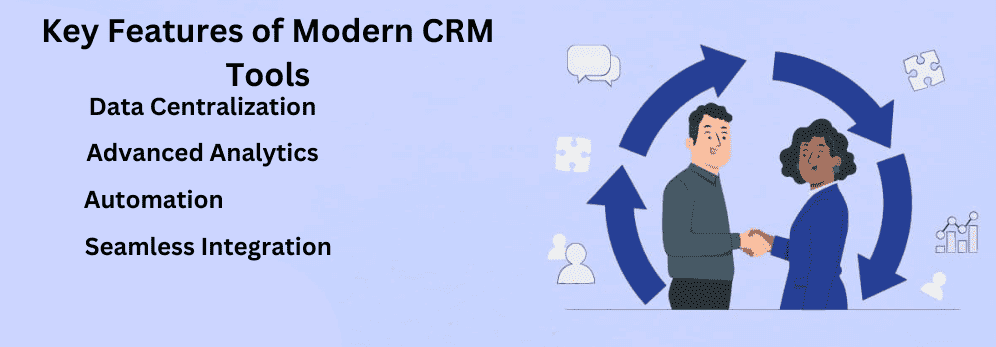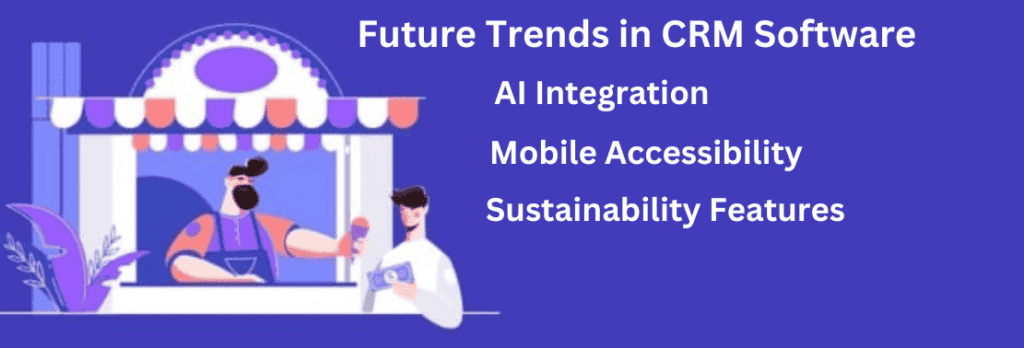CRM Software: Transforming Ecommerce and Retail Success

CRM software is essential for modern businesses looking to build stronger relationships with customers, streamline operations, and drive growth. By consolidating customer data, enhancing communication, and automating key tasks, these tools enable businesses to improve efficiency and deliver personalized experiences. Whether you’re in ecommerce, retail, or any other industry, adopting the right CRM system can transform how you interact with customers and accelerate your success.
Why CRM Software Is Essential for Modern Businesses
- Streamlined Customer Management
Effective customer management is the backbone of any successful business. CRM software consolidates customer data into a single platform, enabling teams to access and update information in real time. This ensures consistent communication and fosters better customer relationships.
By using customer account management software, businesses can:
- Track purchase histories and preferences.
- Offer personalized product recommendations.
- Improve customer satisfaction and retention.
- Enhanced Sales and Marketing Collaboration
Integrating CRM sales and CRM marketing creates a seamless pipeline that boosts efficiency. Sales and marketing relationships benefit from improved communication and shared goals, leading to better campaign execution.
Key benefits include:
- Automated lead nurturing and scoring.
- Data-driven decision-making with real-time analytics.
- Targeted campaigns that drive higher engagement.
The Role of CRM Software in Ecommerce

- Optimized Ecommerce Operations
For online businesses, CRM for ecommerce is indispensable. These platforms enable businesses to manage multiple customer touchpoints, from online inquiries to order tracking.
Features of ecommerce CRM platforms include:
- Integration with popular ecommerce platforms.
- Real-time customer interaction tracking.
- Customizable dashboards for performance monitoring.
- Personalized Customer Engagement
CRM marketing tools allow ecommerce businesses to segment their audience and deliver tailored content. Personalized emails, targeted ads, and exclusive offers create a unique customer experience, fostering loyalty and driving sales.
- Scalable Growth
The best ecommerce CRM platforms grow with your business. They adapt to increased data, larger teams, and expanding product catalogs, ensuring smooth operations during scaling.
Success of CRM and Retail CRM solutions
Building Customer Loyalty
In retail, CRM tools help businesses understand customer behavior and tailor strategies to meet their needs. Retail CRM solutions ensure personalized experiences through:
- Loyalty program management.
- Real-time inventory updates for customer queries.
- Automated follow-ups and feedback collection.
Improving Operational Efficiency
Retailers using CRM systems streamline day-to-day operations by automating manual tasks. Inventory management, customer communication, and sales tracking become more efficient, saving time and resources.
Enhancing Sales Performance
With features like real-time analytics and sales forecasting, retail CRM software empowers businesses to predict trends, set realistic goals, and exceed customer expectations.
Key Features of Modern CRM Tools

- Data Centralization
A comprehensive CRM tool brings all customer data under one roof. This eliminates silos and ensures team collaboration.
- Advanced Analytics
With robust analytics, CRM software provides insights into customer behavior, campaign performance, and sales trends. These insights drive informed decision-making.
- Automation
Automation features streamline repetitive tasks such as data entry, follow-up emails, and lead scoring. This improves efficiency and reduces errors.
- Seamless Integration
Modern CRM tools integrate seamlessly with existing business systems, such as ERP software, marketing platforms, and ecommerce sites, creating a unified workflow.
Advantages of Implementing CRM Solutions
- Enhanced Customer Relationships
By tracking interactions and understanding customer preferences, businesses can foster stronger relationships and improve loyalty.
- Increased Efficiency
Automation and centralized data management save time, allowing teams to focus on strategic initiatives.
- Higher Revenue
With personalized campaigns and improved customer experiences, businesses using CRM software see significant increases in revenue.
- Competitive Edge
Staying ahead in the market requires innovation. CRM tools empower businesses to adapt to changing customer expectations and market trends.
Best Practices for Implementing CRM Software
Choose the Right Platform
Select a CRM solution tailored to your industry and business size. Scalable platforms like ecommerce CRM are ideal for online retailers, while retail CRM suits brick-and-mortar stores.
Train Your Team
Invest in comprehensive training to ensure employees understand how to use the CRM tool effectively.
Integrate Seamlessly
Ensure the CRM software integrates with your existing systems to maximize functionality and reduce disruptions.
Regularly Update Data
Keep customer information accurate and up-to-date to enhance decision-making and improve customer interactions.
Future Trends in CRM Software

- AI Integration
Artificial Intelligence is revolutionizing CRM tools by enabling predictive analytics, personalized customer interactions, and intelligent chatbots.
- Mobile Accessibility
Mobile-friendly CRM platforms empower teams to manage customer relationships on the go, enhancing flexibility and responsiveness.
- Sustainability Features
Future CRM software will focus on eco-friendly solutions, such as digital communication and paperless workflows, aligning with sustainable business practices.
Wind-up:
CRM software is a game-changer for businesses in ecommerce and retail. From enhancing customer management to fostering better sales and marketing relationships, these tools ensure sustainable growth. Whether you’re exploring ecommerce CRM platforms or implementing retail CRM solutions, adopting the right tools can transform your operations. Let our innovative CRM systems empower your business to achieve new heights in customer satisfaction and revenue growth.
FAQs
Q: What is CRM software?
A: CRM (Customer Relationship Management) software is a tool that helps businesses manage customer interactions, sales, and support activities efficiently.
Q: What are the main features of CRM software?
A: Key features include contact management, sales tracking, email integration, customer support, reporting, and analytics.
Q: How does CRM software benefit businesses?
A: It improves customer relationships, enhances sales performance, streamlines communication, and provides insights for better decision-making.
Q: Can CRM software be customized for specific industries?
A: Yes, most CRM solutions offer customization options to meet the unique needs of industries like retail, healthcare, and real estate.

